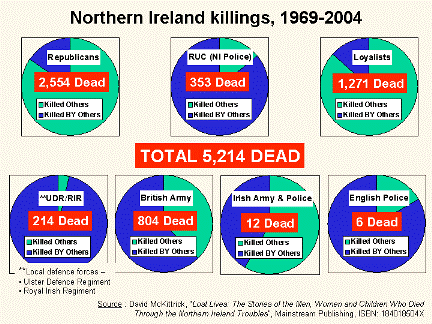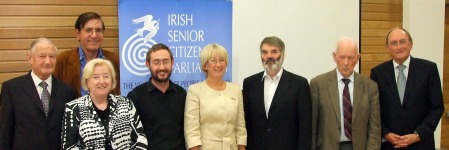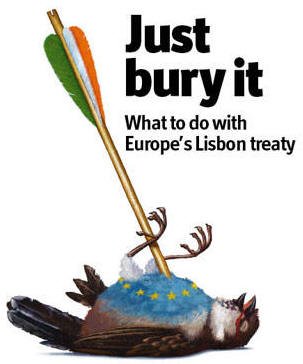|
|
| Blog |
 |
| Archive |
|
|
|
|
| Blog |
| To find an archived article, simply click on Index and scroll the subject titles, or do a Ctrl-F search |
TALLRITE BLOG
You can write to me at
blog2-at-tallrite-dot-com |
||||||||||||||||||||||||||||||||||||||||||||||||||||||||||||||||||||||||
| “Ill-informed and Objectionable” Comment by an anonymous reader | ||||||||||||||||||||||||||||||||||||||||||||||||||||||||||||||||||||||||
|
September 2009 |
||||||||||||||||||||||||||||||||||||||||||||||||||||||||||||||||||||||||
|
|
||||||||||||||||||||||||||||||||||||||||||||||||||||||||||||||||||||||||
|
||||||||||||||||||||||||||||||||||||||||||||||||||||||||||||||||||||||||
|
Just for fun, the latest Rasmussen poll on President
Barack Obama's popularity will |
||||||||||||||||||||||||||||||||||||||||||||||||||||||||||||||||||||||||
|
ISSUE #196 - 13th September 2009 [334+481=815] |
||||||||||||||||||||||||||||||||||||||||||||||||||||||||||||||||||||||||
|
Has Gordon Brown Become Anti-British? In the US, some of the wilder conservatives question not only whether President Obama is American (there is evidence he was born in British Kenya, the land of his father and he refuses to produce his original birth certificate) but whether he is even pro-America. Such accusations were partly the reason he reluctantly resumed wearing an American lapel badge. I am beginning to wonder the same about the ever more manic, pill-popping Gordon Brown - is he pro British? His recent behaviour vis-à-vis Libya puts this in serious doubt. Let's recap. Libya's vicious, megalomaniac, economically incompetent, terrorist-supporting dictator has been in power for forty years, since as a young officer in the army Moammar Gadaffi seized the leadership from King Idris in a coup d'état on 1st September 1969. (I remember it well - I was living there. To my dismay he quickly shut down all the bars, casinos and nightclubs which made Tripoli such a great place for a young man.)
Libya was rightly classified as a terrorist-supporting state. But something not unrelated to 9-11 happened in 2003: George W Bush invaded Iraq to depose Saddam Hussein. Colonel Gaddafi observed the violent downfall of a fellow terrorist-supporting Arab dictator and drew a rational conclusion. With a firm eye on his own mortality, he rang up prime minister Bersluconi of Italy, the former colonial power, and confessed
Pervez Musharraf, military dictator of Pakistan, had also reckoned it was better to be with America than against it. So in early 2004, prodded by the US, he unmasked AQ Khan as not only the hitherto revered father of Pakistan's successful nuclear weapons programme, but also a prolific exporter - for money - of nuclear technology to rogue states including North Korea, Iran and ... Libya. It was against this backdrop that, in December 2003, Col Gadaffi suddenly renounced his weapons of mass destruction (WMD) programmes and welcomed international inspectors to Libya to verify this.
It was personal self-preservation and American aggression that were the the Colonel's motivator, not some kind of Damascene conversion to pacifism, much as the West might like to feign that a new commitment to good behaviour is part of its stunning success over Libya's WMD. Why, we even want to pretend he has joined the war on terror! Yeah, right. But Col Gadaffi remains as devoted to fomenting trouble as he ever was and remains a dedicated anti-West Islamist. He has just become more more clever and subtle about it, as this statement of his about the explosive rise in Islamic populations within Europe reveals (minute 3-3½ in this Youtube clip):
Germany's is the first European government to admit that the relentless rise in its Muslim population is unstoppable, with the likely result of Germany becoming a Muslim majority state by 2050. Indeed, the expectation is that the total across Europe will double in just twenty years. So Col Gadaffi realises he doesn't need terrorists or suicide-homicide bombers to achieve his Islamist ends. So against this backdrop, how can anyone explain the bizarre kowtowing to Col Gadaffi by Britain under Gordon Brown? The recent revelations are astounding:
That's why I ask the question: is Gordon Brown backing Britain? Rumours used to circulate Harold Wilson, Labour prime minister in the 1970s when the party was much more wedded to the virus of socialism, was in reality a Communist spy in the pay of the Soviet Empire. So the concept, however misplaced, of a non-patriotic chief executive is not a new one. Or is Mr Brown so enraged at his own incompetence and unpopularity that his idea of revenge against his fellow-countrymen is to wage war against them? Or, more likely, have the pills simply taken over his capacity for rational thought and behaviour? Whatever the cause, he has become a menace to the security of Britain and therefore the free world. The sooner the British people eject Prime Minister Brown the better for everyone. At the beginning of this month, the campaigning over Ireland's referendum on the Lisbon Treaty finally began in earnest, with countless pious statements on TV and radio, and lampposts festooned with posters and slogans. I have made no secret of my stance, as a Lisbon Naysayer. In addition to what I wrote at the time of Ireland's first referendum last year, my most recent blog expounded at some length on several of the reasons. We Naysayers have a built-in advantage in the argument in that we can easily find bits and pieces to specifically object to, whereas the Yessirs are in greater difficulty because due to the very nature of the treaty their arguments must necessarily be much more amorphous while skirting round the anomalies. Consequently the Yessirs spent most of their energy last time in refuting the arguments - false or otherwise - put forward by the Naysayers, and neglected to propound positive reasons for voting Yes. Moreover, if you spend all your energy trying to shoot down your opponents arguments, all you do is embed those arguments in the public's mind. They have perhaps learnt something from this in the current campaign, but not very much. For the Yessirs' slogans are pathetic and meaningless. Worse than that, they are so lacking in logic that they could be used equally by the Naysayers. This is because the Yessirs have again fallen into the trap of thinking that a No vote means a vote to quit the EU, whereas it means nothing of the sort. It merely means that Naysayers would rather retain the EU as it is than move to a different EU bound by Lisbon rules. Naysayers still believe the propaganda that got the Nice Treaty through an Irish referendum on the second attempt: that Nice was needed to streamline the workings of the EU in preparation for the imminent access of many new members (ten joined in 2004 plus two more in 2007). Here are the pro-Lisbon slogans I spotted around Dublin. Not one of them leads naturally to a Yes vote.
As for the canard that a No vote will somehow lead to Ireland's demotion within or exit from the EU, there are no provisions in any EU treaty (including Lisbon) for the expulsion of a member-state, or for the imposition of sanctions on any member state as a consequence of a democratic decision made by the citizens of that state, nor are there any existing legal provisions for the establishment of a second-tier status for some states within the EU. The Yes side is coming up with stories such as these to frighten people into voting Yes, because it can find very little in the way of coherent, non-generalised arguments that advocate a Yes vote on its own merits. So instead, it is reduced to
I predict a victory for the No side, but not as comprehensively as the last time and with a smaller turnout because so many voters in the current financial climate have their minds too full of their economic woes. Irish Senior Citizens Parliament and Lisbon Last week, in a moment of foolishness, I accepted an invitation to speak to a meeting of older people under the auspices of the Irish Senior Citizens Parliament, an organization comprising over 120,000 members. The purpose of the debate, called “Communicating Europe”, which took place on the auspicious ninth of the ninth of the ninth, was to explain the innards of the Lisbon Treaty and to present arguments for and against it, in the context of Ireland's (second) referendum which will be held on 2nd October, in view of the wrong answer given in June 2009. I, of course, spoke for the No side, representing myself, a lonesome engineer with aspirations to be a blogger and occasional columnist. I was somewhat taken aback to discover that my opponents on the Yes side were to be a Cabinet Minister, Mary Hanafin from the ruling Fianna Fail party and a long-serving MEP, Proinsias de Rossa (Irish for Francis Rose) of Labour. They were later joined by a TD (member of the Irish parliament), Sean Barrett, from the main opposition party Fine Gael. With me as a Naysayer was Eoin Ó Broin from Sinn Féin, a connection which makes me feel distinctly uncomfortable.
The meeting opened with a talk about the “facts” of Lisbon by Andrea Pappin, Executive Director of the European Movement Ireland, supposedly a non-partisan organization; her talk nevertheless conveyed a pro-Lisbon message. Minister Hanafin, Mr Ó Broin and Mr deRossa then made their
presentations. They should be commended for the respectful, open
and calm manner in which they spoke, even if I supported neither the
pro-Lisbon conclusions of the first and third,
Then it was my turn. With this provocative little chart as a backdrop, I launched into my ten-minute spiel, with a passionate rendition of more or less what I wrote in my previous blog “Voting NO to Lisbon - Again”. If you are really bored, you can listen to my recording of it here. It was my first-ever political speech. I could see the polite irritation of the professional politicians, which by the way also included in the audience two more Fianna Fail ministers, Conor Lenihan and Barry Andrews. Mr Barrett, a last-minute inclusion, then explained why his opposition party was supporting the Government over Lisbon. (After the meeting, the organisers apologised to me that the Naysaying speakers were outnumbered four-to-two). Questions then followed from the audience, which the panel were invited to respond to. The questions were beyond my competence so my contribution was pretty thin. However Mr DeRossa used the opportunity to attack some figures that I had quoted. I had said that
Speaking as an MEP, he said the annual figure of two thousand was ridiculous; his own experience was nearer to twelve. I responded that my figures were carefully researched but I didn't have the details with me. Later I looked into the matter and the next day was able to write to him along the following lines. The figures I had used originate in the EurLex register of EU rules. I was alerted to them by this statement on Libertas' website:
I confess that I did not go to EurLex to confirm the figures, but a quick look subsequently shows that there are at least 17,417 acts of legislation currently in force, with another 1330 "in preparation". A search of legislative acts which came into force between 1st Jan 2004 and 31 August 2009 results in 10,761 acts (1077 pages, each with about ten acts per page). Thus, the two thousand per year figure I used in my speech appears to be accurate, however the 30,000 figure may be somewhat overstated though it is in the right ballpark. I feel my use of those statistics was justifiable and not misleading, and that Mr deRossa's suggestion that the EU puts out only a dozen laws per year is clearly wrong. Unless there is a definitional problem as to what a “law” or a “legislative act” is. He did not write back to me. This video clip is a great example of human ingenuity, and also of how to give a compelling presentation. The LifeSaver bottle which it describes can put clean pure water in the hands of disaster victims as fast as a cargo-plane can fly to the disaster zone. It is nothing but a hand-operated filter system with pores so fine (15 microns) that it sieves out bacteria, viruses, cysts, parasites, fungi and all other microbiological waterborne pathogens. It does all this without the aid of any chemicals such as iodine or chlorine. A 4,000 litre costs £115. Watch and enjoy, and maybe even buy one. (No commission for me, worst luck)
Hat-tip: Guido Fawkes Incidentally, six long years ago I reported on an alternative instant water-purification device with no moving parts at all, then called the Hydropack, for use in similarly fraught areas. Issue 196’s Comment to Cyberspace Only one submissions in the past few weeks, which led to a minor altercation with the object of my derision, but it was amicably settled.
- - - - - S O M A L I A - - - - - Quote: “Three of my friends died but who killed them is the question. We were expecting a ransom this morning.”
A member of al-Shabaab, Now that's what I call a security adviser. - - - - - U S - - - - - Quote: “You lie!”
Mr Obama had just said
Mr Wilson later apologised for his lack of civility, Quote: “Let us pray, for the next thirty years we will learn that if a candidate
then he really [is] ruthless, largely inexperienced, and not at all convinced that American has ever been an exceptional nation.” Prof Victor Davis Henson, on his president, Barack Obama Quote: “Who knows — maybe she'd feel it was worth it.”
Mellisa Lafsky speculates that Mary Jo Kopechne Quote: “You are really going to be surprised what happened was a powerful, heart-warming story. You are going to be absolutely impressed with this disgusting thing that took place with me in the beginning. I turned my life completely around.”
Phillip Garrido, boasting on the phone to a radio station
He is accused of, inter alia, kidnapping
He is clearly enjoying his notoriety. - - - - - C L I M A T E C H A N G E O L O G Y C U L T - - - - - Quote: “Tim Nicholson, 41, [has] views amounting to a philosophical belief in climate change, allowing him the same legal protection against discrimination as religious beliefs.”
An employment tribunal in England under Judge David Sneath
In my view, the environmentalism of - - - - - B R I T A I N - - - - - Quote: “For many, Britain fights, Germany pays, France calculates, Italy avoids.”
Eric Joyce MP, in a letter to Gordon Brown
He is summing up how Americans in particular
But, hey, is nobody left to man the photocopier? - - - - - I R E L A N D - - - - - Quote: “You have to make a choice.
So which is it? Because there isn’t anything in between.” Irishman Niall Fitzgerald, He was lecturing students about the need to accept
accountability Quote: “All of [the EU's political leaders] know quite well that if the similar question [on approving the Lisbon Treaty] was put to their electorate by a referendum the answer in 95% of the countries would probably have been No.”
Charlie McCreevy, Ireland's EU Commissioner,
- - - - - J A P A N - - - - - Quote: “I eat the sun. Like this: yum, yum, yum. It gives me enormous energy ... My husband has recently started doing that too ... While my body was asleep, I think my soul rode on a triangular-shaped UFO and went to Venus. It was a very beautiful place and it was really green ... [Tom Cruise] was Japanese in a previous life.”
Miyuki Hatoyama, wife of Japan's new prime minister, Yukio Hatoyama,
She seems to have joined the nutty First Lady's Club, |
||||||||||||||||||||||||||||||||||||||||||||||||||||||||||||||||||||||||
| See the Archive and Blogroll at top left and right, for your convenience |
Now, for a little [Light Relief]
|
Gift Idea |
||||||||||||||||||||||||||||||||||||||||||||||

Good to report that as at
FREED AT LAST, |
||||||||||||||||||||||||||||||||||||||||||||||
|
BLOGROLL
Atlantic Blog (defunct) Blog-Irish (defunct)
Jihad
Religion
Iona Institute
Leisure
Blog Directory
My Columns in the
|
||||||||||||||||||||||||||||||||||||||||||||||
|
What I've recently
But it's not
entirely honest in its subtle pro-Palestinian bias, and therefore needs
to be read in conjunction with an antidote, such as See detailed review +++++
BP's ambitious CEO John Browne expanded it through adventurous acquisitions, aggressive offshore exploration, and relentless cost-reduction that trumped everything else, even safety and long-term technical sustainability. Thus mistakes accumulated, leading to terrifying and deadly accidents in refineries, pipelines and offshore operations, and business disaster in Russia. The Macondo blowout was but an inevitable outcome of a BP culture that had become poisonous and incompetent. However the book is gravely compromised by a litany of over 40 technical and stupid errors that display the author's ignorance and carelessness. It would be better to wait for the second (properly edited) edition before buying. As for BP, only a wholesale rebuilding of a new, professional, ethical culture will prevent further such tragedies and the eventual destruction of a once mighty corporation with a long and generally honourable history. Note: I wrote
my own reports on Macondo +++++ A horrific account of:
More details on my blog here. +++++
After recounting a childhood of convention and simple pleasures in working-class Aberdeen, Mr Urquhart is conscripted within days of Chamberlain declaring war on Germany in 1939. From then until the Japanese are deservedly nuked into surrendering six years later, Mr Urquhart’s tale is one of first discomfort but then following the fall of Singapore of ever-increasing, unmitigated horror. After a wretched journey Eastward, he finds himself part of Singapore’s big but useless garrison. Taken prisoner when Singapore falls in 1941, he is, successively,
Chronically ill, distraught and traumatised on return to Aberdeen yet disdained by the British Army, he slowly reconstructs a life. Only in his late 80s is he able finally to recount his dreadful experiences in this unputdownable book. There are very few first-person eye-witness accounts of the the horrors of Japanese brutality during WW2. As such this book is an invaluable historical document. +++++
This is a rattling good tale of the web of corruption within which the American president and his cronies operate. It's written by blogger Michele Malkin who, because she's both a woman and half-Asian, is curiously immune to the charges of racism and sexism this book would provoke if written by a typical Republican WASP. With 75 page of notes to back up - in best blogger tradition - every shocking and in most cases money-grubbing allegation, she excoriates one Obama crony after another, starting with the incumbent himself and his equally tricky wife. Joe Biden, Rahm Emmanuel, Valerie Jarett, Tim Geithner, Lawrence Summers, Steven Rattner, both Clintons, Chris Dodd: they all star as crooks in this venomous but credible book. ACORN, Mr Obama's favourite community organising outfit, is also exposed for the crooked vote-rigging machine it is. +++++
It is really just a collation of amusing little tales about surprising human (and occasionally animal) behaviour and situations. For example:
The book has no real message other than don't be surprised how humans sometimes behave and try to look for simple rather than complex solutions. And with a final anecdote (monkeys, cash and sex), the book suddenly just stops dead in its tracks. Weird. ++++++
It's chapters are organised around provocative questions such as
It's central thesis is that economic development continues to be impeded in different countries for different historical reasons, even when the original rationale for those impediments no longer obtains. For instance:
The author writes in a very chatty, light-hearted matter which makes the book easy to digest. However it would benefit from a few charts to illustrate some of the many quantitative points put forward, as well as sub-chaptering every few pages to provide natural break-points for the reader. +++++
The author was a member of Britain's V Force, a forerunner of the SAS. Its remit was to harass Japanese lines of command, patrol their occupied territory, carryout sabotage and provide intelligence, with the overall objective of keeping the enemy out of India. Irwin is admirably yet brutally frank, in his descriptions of deathly battles with the Japs, his execution of a prisoner, dodging falling bags of rice dropped by the RAF, or collapsing in floods of tears through accumulated stress, fear and loneliness. He also provides some fascinating insights into the mentality of Japanese soldiery and why it failed against the flexibility and devolved authority of the British. The book amounts to a very human and exhilarating tale. Oh, and Irwin describes the death in 1943 of his colleague my uncle, Major PF Brennan. +++++ Other books here |
||||||||||||||||||||||||||||||||||||||||||||||
|
|
||||||||||||||||||||||||||||||||||||||||||||||
|
After
48
crackling, compelling, captivating games, the new World Champions are,
deservedly,
England get the Silver,
No-one can argue with
Over the competition, |
||||||||||||||||||||||||||||||||||||||||||||||
|
|
||||||||||||||||||||||||||||||||||||||||||||||


 Throughout
the 1970s and 1980s one of the terrorist groups he supported was the
IRA, supplying them with countless small and large guns, vast amounts of
ammunition and tons of explosives. This matériel ended up killing
(and maiming) hundreds of British soldiers, policemen and civilians,
along with even more Irish citizens.
Throughout
the 1970s and 1980s one of the terrorist groups he supported was the
IRA, supplying them with countless small and large guns, vast amounts of
ammunition and tons of explosives. This matériel ended up killing
(and maiming) hundreds of British soldiers, policemen and civilians,
along with even more Irish citizens. 
 nor much of the
anti-capitalist pro-neutrality arguments of the second.
nor much of the
anti-capitalist pro-neutrality arguments of the second. 










